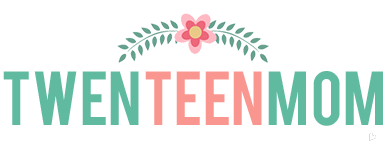Unmasking Your Thyroid: Raising Thyroid Disorder Awareness

The thyroid gland is a small, butterfly-shaped organ found at the lower middle part of the neck. It is sometimes referred to as the “master controller” of metabolism, and is important to health and well-being.
Sure that what comes to your mind whenever you heard about thyroid is the existence of goiter in mostly women. And yes, thyroid disorder awareness is about raising awareness of the said disorder.
Did you know that according to a study by the Philippine Society of Endocrinology, Diabetes, and Metabolism in 2012, one in every 11 Filipino adults has goiter (bosyo) and around one in 12 adults suffer from some form of thyroid disorders? It is definitely shocking that we don’t get to hear about this fact but yes, it does exist and it is very much common to women. However, awareness about it is very low that a lot of people think that having a goiter isn’t dangerous at all.
Good thing that Merck Inc. come up with the idea of raising the awareness of thyroid disorder. Through the help of bloggers, they are able to disseminate the possibility of informing everyone about it.

Last Thursday, Merck Inc. held a bloggers’ event at Radisson Blu Hotel to talk about thyroid disorder awareness. The event was hosted by Dr. Chrysanthus Herrera of Medical Science and Government Affairs Manager of Merck and of the guest speaker of that night, Dr. April Melody Abcede of the Philippine Society Endocrinology, Diabetes, and Metabolism.
The latter discussed the importance of thyroid hormones (T3 and T4) in our body. Dr. Abcede also noted that the level of thyroid hormones in our body should be level and that shouldn’t go down or up as this will signifies a thyroid disorder to the patient.
Among the thyroid disorders, hypothyroidism and hyperthyroidism are the most common ones. And it can happen to anyone particularly for those who have a family history of thyroid problem.
What is hypothyroidism?
Hypothyroidism or too little thyroid hormone tends to have slower metabolism: they gain weight despite not eating much, move, and speak slowly, feel tired and have depresses thoughts, cannot tolerate cold, and have irregular menstrual periods.
Those who are diagnosed with this disorder are advised to take foods rich in iodine. Common foods that are rich with it are seafoods and seashells.
What is hyperthyroidism?
Hyperthyroidism or too much thyroid hormone will have hyperactive metabolism, total opposite to the symptoms of having hypothyroidism. They lose weight despite having good appetite, have heart palpitations most of the time, irritable thoughts and insomnia, have sweating and heat intolerance, and can have tremors in their hands.

Treatment for this disorder varies. There are factors to consider and that, further evaluation is necessary.
To detect whether you have hypothyroidism or hyperthyroidism, screening is needed. The screening is done through a blood test which includes checking Thyroid Stimulating Hormone (TSH) and thyroid hormone levels in the blood (T3 and T4). You will have low TSH and high T3 and T4 if you are hyperthyroid. On the other hand, your TSH levels will be high and T3 and T4 will be low in hypothyroidism.
Pregnant women aren’t exemption. In fact, they are more prone of getting thyroid disorder. It is estimated that around one in 20 pregnant women will develop an underactive thyroid (hypothyroidism) during pregnancy. Though hyperthyroidism can occur but it rarely happens. In most cases, it’s hypothyroidism. Thus, for those who have a family history and even experiencing signs and symptoms, it is really essential to see physician for further evaluation to prevent complications to the mother and the baby.

More information can be found online at www.thyroid.ph. The site comes with guidelines too that help people to have basic evaluation of themselves should they are showing signs and symptoms of having thyroid disorder.





